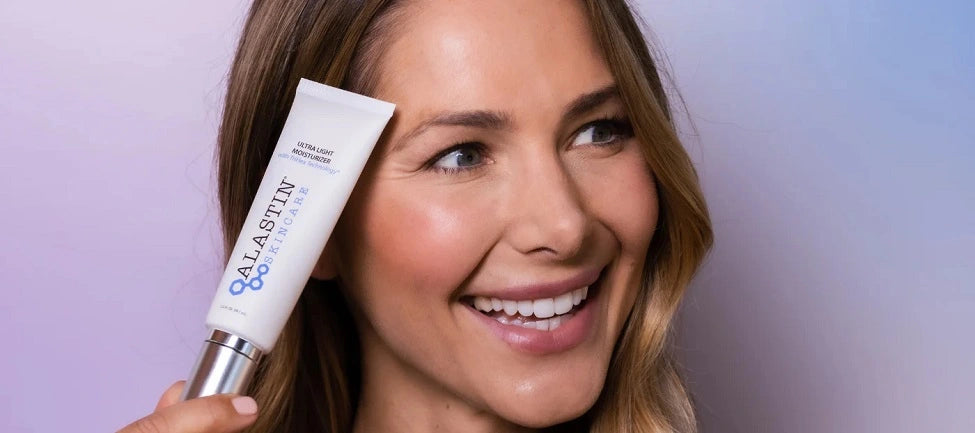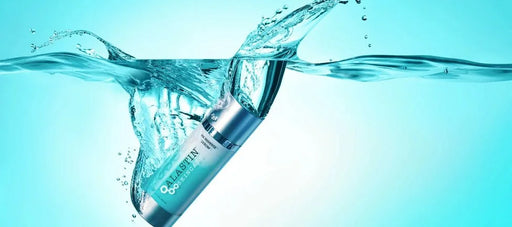You have no items in your bag
Sensitive Skin: Signs, Treatments, and Tips

Sensitive skin is often treated as a niche concern, but studies show that roughly 60–70% of women and 50–60% of men have some degree of skin sensitivity. If you’re reading this, the chances are high that you’ve experienced this condition at some point in your life. The good news is that while sensitive skin can be uncomfortable, you can find relief with proper care.
What is Sensitive Skin?
Marked by stinging, burning, redness, and roughness, sensitive skin can occur in any skin type. Dr. Mara Weinstein Velez, MD, FAAD, Director of Cosmetics and Laser Surgery at the University of Rochester Medical Center in Upstate New York, says, “We see sensitive skin in patients with both oily and dry skin.”
If you suffer from any of the following symptoms, your skin may be categorized as sensitive:
- Your skin appears red or easily flushes.
- You notice a rough or uneven texture.
- Beauty products often irritate you.
- You’re prone to rashes or breakouts.
- Your skin is very sensitive to the sun.
Common Causes of Sensitive Skin
Research shows that skin sensitivity may be impacted by different factors, including genetics and age. The climate where you live may play a role as well with colder temperatures, high humidity, wind, and sun exposure increasing the likelihood of skin sensitivity. If you have recently undergone a cosmetic procedure, your skin will be more sensitive than normal, as well. No matter what the root cause, sensitive skin is highly reactive due to, at least in part, an impaired skin barrier.
Sensitive skin can be triggered by extreme temperatures, rough clothing, and skincare. Weinstein Velez explains that she often sees sensitive skin patients who try to change products in an effort to find something that works—only to exacerbate the issue. She says, “Many people just keep trying different products without realizing that their skin is not going to tolerate them. As they continue to switch, they get into a downward spiral where they think nothing will work.”
Caring for Sensitive Skin
When your skin is acting sensitive or is compromised from a recent cosmetic treatment, it’s important to choose products that don’t contribute to the irritation, but instead help to soothe and calm. Dr. Weinstein Velez says a common mistake that patients make is using only “plant-based” or “organic” ingredients to treat their reactive skin. “Sometimes these products have plant-derived ingredients that are reactive. Propolis, lavender, and tea tree oil can stimulate a response on the skin even though they seem natural.”,
Dr. Weinstein Velez adds that people with sensitive skin should avoid alcohol-based products, anything with added fragrance, and exfoliators with rough beads that “can cause micro-abrasions on the skin.”
Choosing Products for Sensitive Skin
Dr. Weinstein Velez recommends her sensitive skin patients stick to a simple three-step regimen that includes a cleanser, a moisturizer, and a sunscreen. That’s exactly what you’ll find in the new sensitive skin line from ALASTIN Skincare.
Cleanser for Sensitive Skin
Patients with sensitive skin often have trouble finding cleansers that thoroughly cleanse without irritating. If your skin is highly sensitive, even water can burn or sting—but cleansing is a critical step to caring for sensitive skin to remove makeup, pollution, and dirt that if left on the skin can further aggravate it.
“A cleanser for sensitive skin should be non-stripping, it should promote hydration by replenishing lipids and ceramides lost due to irritation, while removing dirt and oil without causing a reaction—that’s exactly what ALASTIN’s Ultra Calm Cleansing Cream does,” says Dr. Weinstein Velez. The non-comedogenic, fragrance-free formulation helps to calm skin with oat protein extract, while supporting the skin’s barrier function with triglycerides and linoleic acid.,
Moisturizer for Sensitive Skin
The Ultra Light Moisturizer with TriHex Technology® helps to maintain proper hydration and support the skin’s natural barrier, while nourishing and hydrating skin in a lightweight formula that easily glides on the skin. “For sensitive skin patients, less is more,” says Dr. Weinstein Velez. “This is the perfect product to use for that light hydration you need without being too heavy.”
The moisturizer helps to hydrate with silver mushroom, which has hydrating properties even more powerful than hyaluronic acid, as well as D-Panthenol, a vitamin B5 derivative that helps to soften and moisturize the skin. ALASTIN’s proprietary TriHex Technology® combats the signs of aging by working with the skin to clear out damaged elastin and collagen while supporting the skin's natural ability to produce new, healthy elastin and collagen.
Sunscreen for Sensitive Skin
Sun protection is important for everyone, but if your skin barrier is compromised UVA/UVB rays can cause even further damage and hyperpigmentation. Dr. Weinstein Velez says finding a sunscreen that really works for sensitive skin is tricky: “It seems like all day long, I hear from patients that don’t use sunscreen because they can’t find anything that they don’t react to.”
SilkSHIELD SPF 30 with TriHex Technology® is gentle for those with sensitive skin thanks to a 100-percent mineral-based formula. Dr. Weinstein Velez says, “I’ve never felt any sunscreen of its kind. SilkSHIELD is so silky and smooth but at the same time really lightweight and moisturizing.” The benefits go beyond simple sun protection with ingredients to help block IR rays, pollution, and blue light. SilkSHIELD also contains TriHex Technology® to encourage a youthful look that lasts.
---------
1 Farage MA. The prevalence of sensitive skin. Front Med (Lausanne). 2019 May 17. 2019;6:98.
2 Johnson, Jon. “Sensitive skin: Home remedies and prevention.” Medical News Today. 2021 July 28. https://www.medicalnewstoday.com/articles/sensitive-skin
3 Duarte I, Silveira JEPS, Hafner MFS, et al. Sensitive skin: review of an ascending concept. An Bras Dermatol. 2017;92(4):521-525.
4 Duarte I, Silveira JEPS, Hafner MFS, et al. Sensitive skin: review of an ascending concept. An Bras Dermatol. 2017;92(4):521-525.
5 Basavaiah ND, Suryakanth DB. Propolis and allergic reactions. J Pharm Bioallied Sci. 2012;4(4):345.
6 Prashar A, Locke IC, Evans CS. Cytotoxicity of lavender oil and its major components to human skin cells. Cell Prolif. 2004 Jun;37(3):221-9.
7 Vyumvuhore, R. et al. Vibrational spectroscopy coupled to classical least square analysis, a new approach for determination of skin moisturizing agents' mechanisms. Skin Research and Technology 20.3, 282-292 (2014)
8 Berbis P, Hesse S, Privat Y. Essential fatty acids and the skin. Allerg Immunol (Paris). 1990 Jun;22(6):225-31.
9 Shen T, Duan C, Chen B, et al. Tremella fuciformis polysaccharide suppresses hydrogen peroxide-triggered injury of human skin fibroblasts via upregulation of SIRT1. Mol Med Rep. 2017;16(2):1340-1346.
10 Camargo FB Jr, Gaspar LR, Maia Campos PM. Skin moisturizing effects of panthenol-based formulations. J Cosmet Sci. 2011 Jul-Aug;62(4):361-70.
11 Widgerow AD, Fabi SG, Palestine RF, et al. Extracellular matrix modulation: optimizing skin care and rejuvenation procedures. J Drugs Dermatol. 2016;15(4)(suppl):s63-s71.
12 Liu H, Yue J, Lei Q, Gou X, Chen SY, He YY, Wu X. Ultraviolet B Inhibits Skin Wound Healing by Affecting Focal Adhesion Dynamics. Photochem Photobiol. 2015 Jul-Aug;91(4):909-16. doi: 10.1111/php.12462. Epub 2015 May 16.











